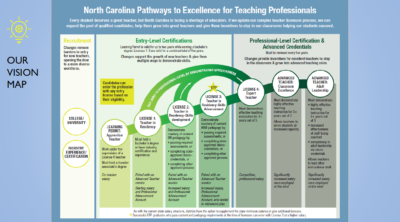|
|
The Professional Educator Preparation & Standards Commission (PEPSC) heard Thursday a more fleshed-out presentation on a potential new plan for teacher licensure, which could mean dramatic increases in teacher compensation and a higher starting pay for education school graduates.
The plan contains multiple levels at which educators can teach, beginning at apprentice and progressing on to expert and advanced teaching roles that come with additional responsibility and compensation well in excess of what the state pays today.
Patrick Miller, superintendent of Greene County Schools and chair of PEPSC, stressed to the commission, however, that this is not a finished product.
He said that subcommittees of the commission will continue to refine the model. The model will also be presented to the State Board of Education in April for feedback. He said anyone with comments about the plan can email him at pathways.feedback@dpi.nc.gov.
He hopes to get a final product before the Board this summer for review, he told PEPSC members.
“Today’s presentation is a sample model, and the Board will hear exactly that in April: that this is a sample model,” he said.
Miller said he has heard from legislators that they may be more receptive to a new licensure model — along with an appropriation request for increased compensation — in the long session in 2023.
The model presented to PEPSC today contained some changes and more detail than a previous iteration EducationNC reported on in January. Below is the updated overview chart, which now also contains proposed salaries for each teacher level.
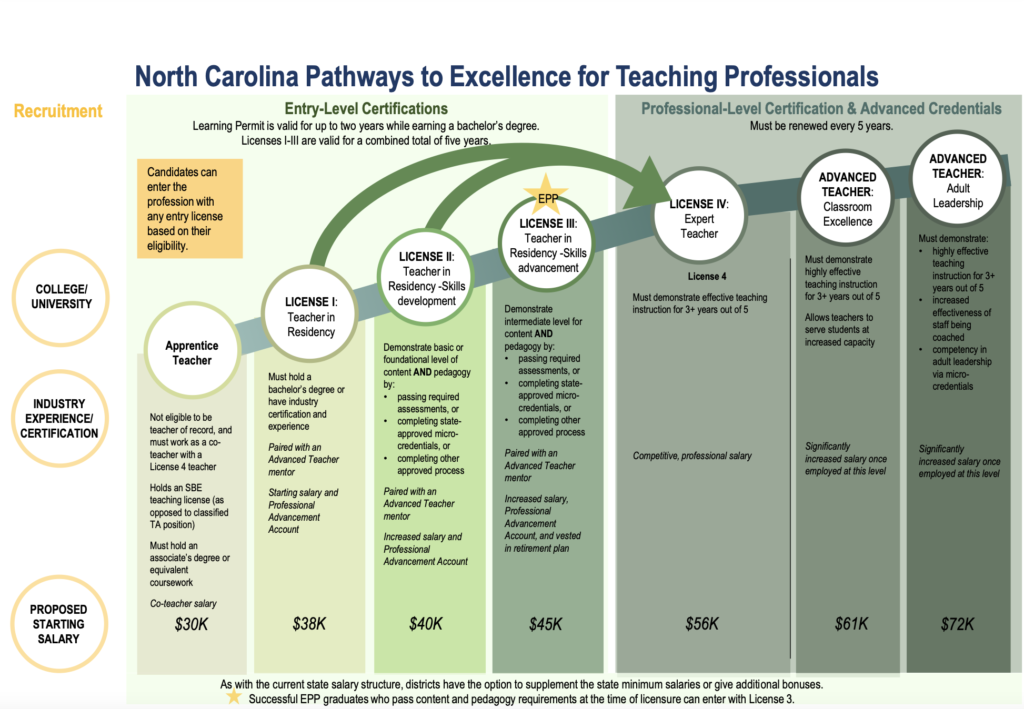
The range goes from $30,000 for an apprentice teacher up to $72,000 for Advanced Teacher (Adult Leadership). The current state teacher salary schedule tops out in the low $50,000s. A graduate of an educator preparation program would likely start at license three, which has a salary of $45,000. Currently, the same person would start out at about $35,000.
The presentation also includes detailed slides regarding the requirements for each level of teaching, as well as the responsibilities.
For instance, you can see below that an apprentice must have an associate degree and will work under the supervision of a more advanced teacher, among other requirements.
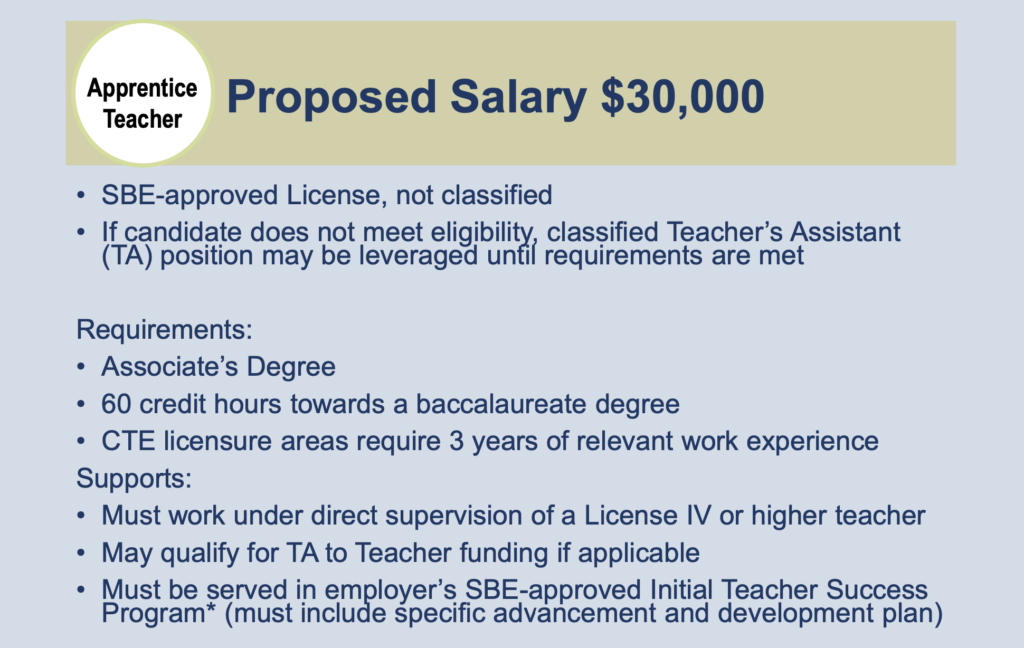
To advance to the next level will require a bachelor’s degree and more, but the educator will now be co-teaching with a more advanced teacher.
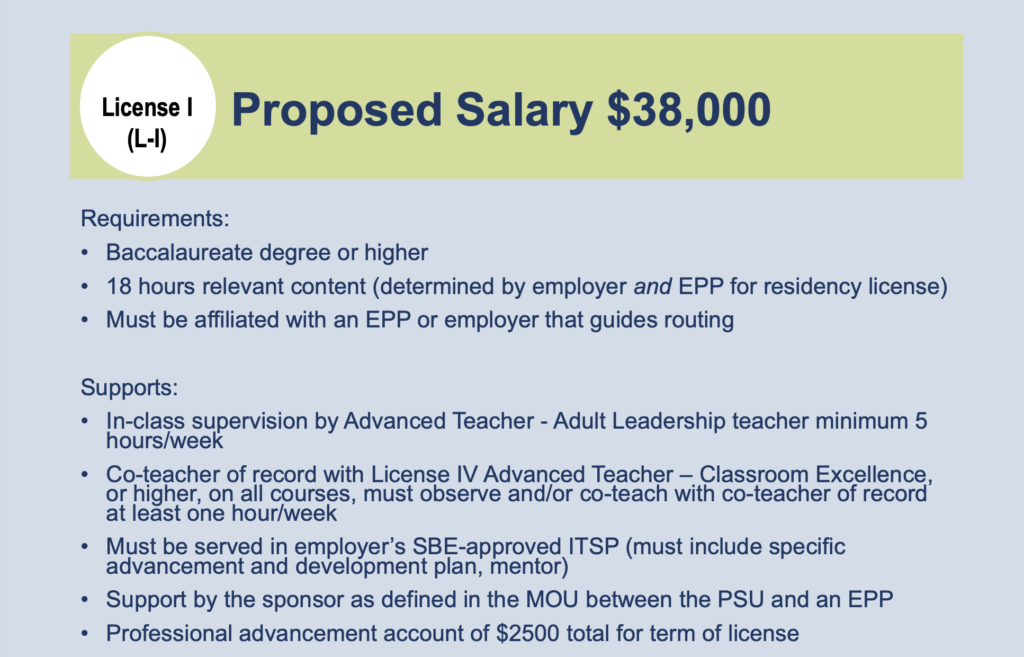
EPP stands for educator preparation program, and PSU stands for public school unit. ITSP is the Initial Teacher Success Program mentioned in the previous slide.
At license two, the educator becomes the teacher of record and starts having to meet requirements that contain measures of effectiveness. However, in contrast to how teachers are evaluated today, there are multiple options, including tests, micro-credentials, and Practical Educator Evidence Review, described in more detail in the slide below.
Andrew Sioberg, director of educator preparation at the state Department of Public Instruction (DPI), noted during the meeting how different evaluation requirements would be in this proposed licensure system.
“This is a clear departure from the limited current system, which is only involving testing,” he said.
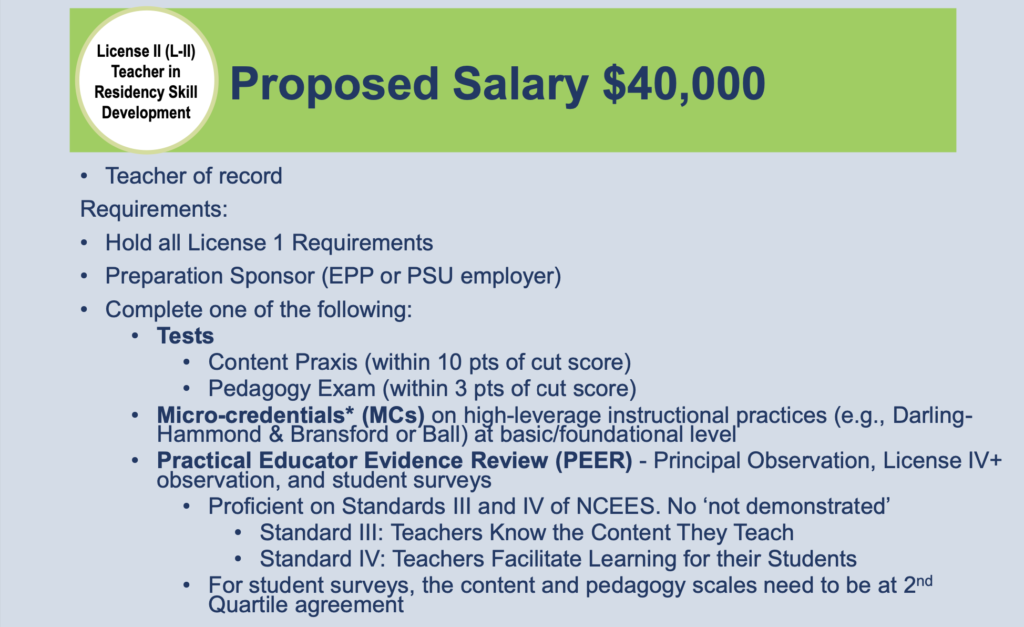
And multiple evaluation options continue to be available at each level. You can see in the slide below the requirements for a level three teacher. This is the level a graduate of an educator preparation program would likely start out at.
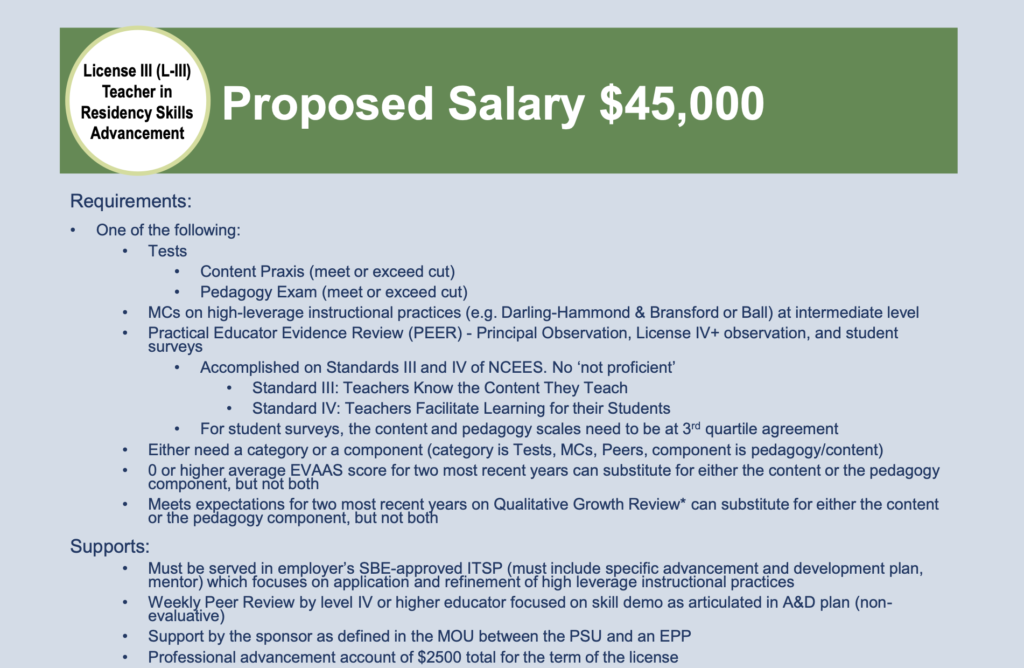
License four is considered an expert teacher, and it comes with a salary in excess of what the state pays its most experienced teachers now. As you see in the slide below, these teachers can opt to use something called a Qualitative Growth Review instead of the Education Value-Added Assessment System (EVAAS) to prove their effectiveness.
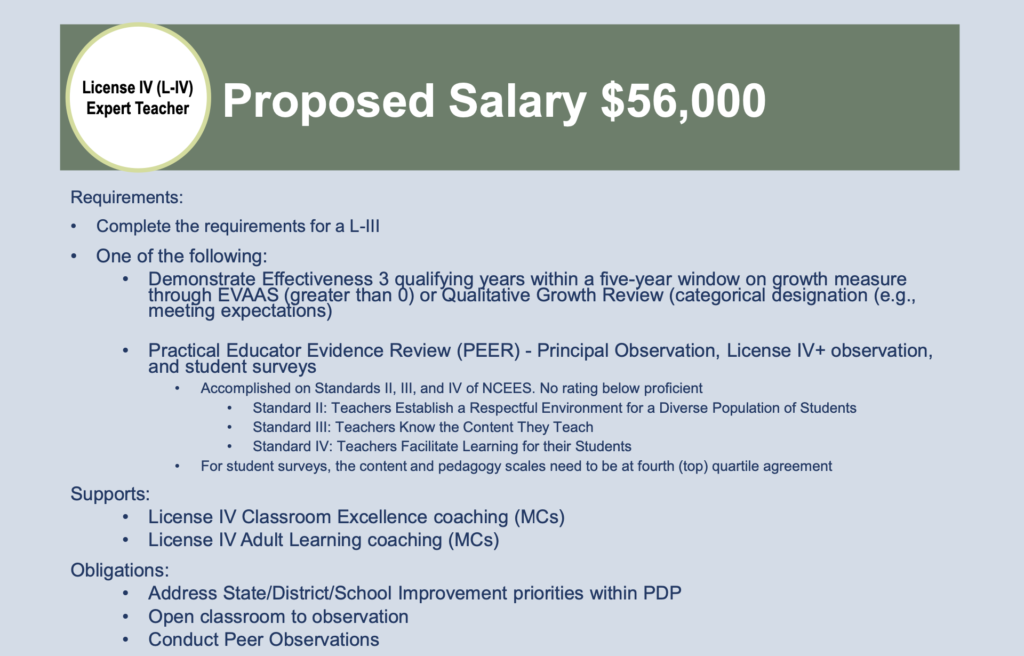
A Qualitative Growth Review would be “a review of a developing teacher’s student learning conducted by a L-IV CE teacher at the beginning of a school year and again at the end of the school year to qualitatively assess student growth over that time,” according to the presentation.
To get to the expert level, a license three teacher would need to demonstrate effectiveness in three out of five years. It’s possible that a level three teacher, just out of an education school, could demonstrate effectiveness for three years and become a level four, or expert, teacher. That means their salary would jump from $45,000 to $56,000 before they’ve been teaching for five years. Currently, it would take decades for a teacher to go from the current starting salary of $35,000 to the top salary of $52,000.
Once an educator reaches expert teacher level, they can get a $5,000 salary bump by renewing their license. If they don’t successfully renew their license, they still keep the license for another five years but don’t get a salary increase. However, if they don’t successfully renew their license a second time, it expires.
An expert teacher can go even further up the chain by becoming an Advanced Teacher (Classroom Excellence) or even an Advanced Teacher (Adult Leadership), both of which come with substantial bumps in pay. However, one has to continue to meet the requirements for advanced teacher in order to remain one.
For example, someone who achieves the level of advanced teacher could, when it’s time to renew, meet the requirements to be an expert teacher but not an advanced one. In that case, they would simply go back to the licensure level of an expert teacher, forgoing the extra pay and responsibilities of the more advanced roles.
Johanna Anderson, the executive director of The Belk Foundation, spoke at the commission meeting in support of the work that PEPSC is doing developing this plan.
“North Carolina teachers are working harder than ever to educate students, and it is increasingly concerning that teachers lack the professional supports and opportunities they deserve,” she said.
She said The Belk Foundation supports the “ideals and core principles” of the plan, even though it’s not in its final form.
She also said the foundation is funding an effort to bring together supporters to form a coalition that will help build momentum to make the new licensure plan —when it’s in its final form — a reality.
“The work to elevate the teaching profession is a long term effort and will take many committed champions,” she said, adding later: “We believe your work will be a catalyst for lasting change, and we want you to know that The Belk Foundation stands with you.”
The new licensure model will next be discussed in April at the State Board of Education.
Here is the presentation from today.
You can watch the PESPC meeting yourself below:
Recommended reading

